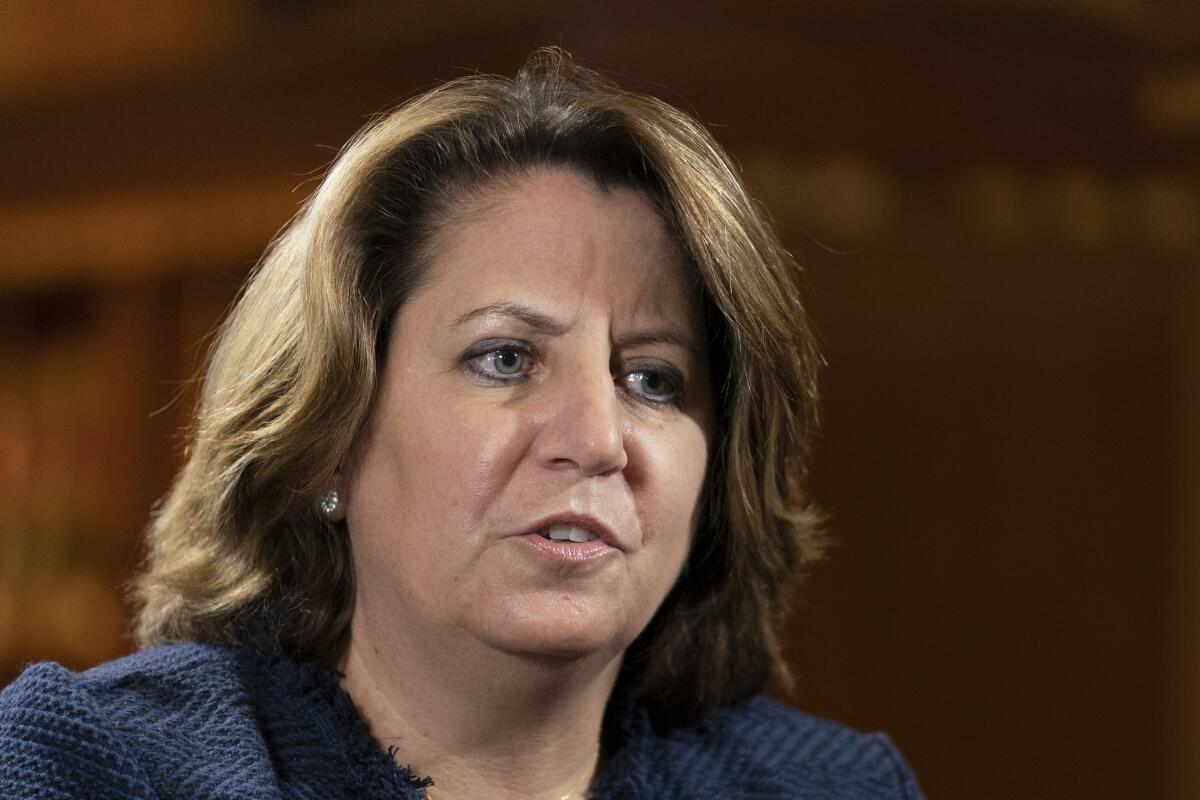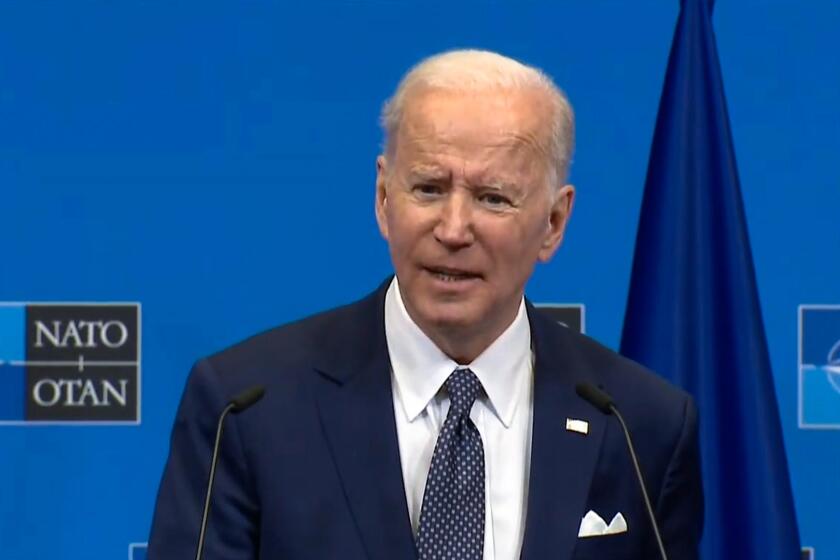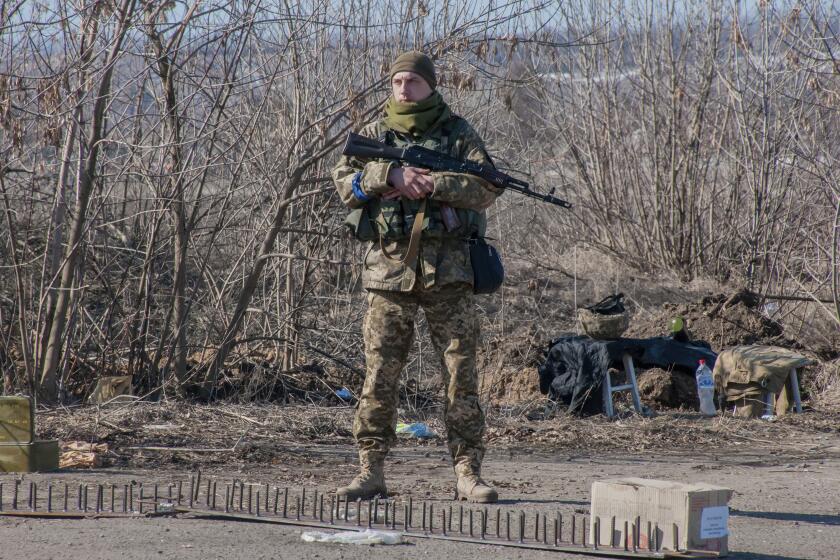Russian officials charged in years-old energy sector hacks

- Share via
WASHINGTON — Four Russian officials, including hackers with a government intelligence agency, have been charged in cyberattacks that targeted the energy industry and thousands of computers in the United States and around the world between 2012 and 2018, the Justice Department said Thursday in unsealing a pair of indictments.
The hacks targeted companies and organizations in about 135 countries. Among the victims was the owner of a Kansas nuclear power plant whose business network was compromised by the hackers, officials said.
Though the intrusions date back years, the indictments come as the FBI has raised fresh alarms about efforts by Russian hackers to scan the networks of energy firms in the U.S. for vulnerabilities that could be exploited amid Russia’s war against Ukraine.
President Biden is in Europe meeting with NATO, G-7 and European leaders, preparing for scenarios if Russia’s war in Ukraine escalates.
“Russian state-sponsored hackers pose a serious and persistent threat to critical infrastructure both in the United States and around the world,” Deputy Atty. Gen. Lisa Monaco said in a statement. “Although the criminal charges unsealed today reflect past activity, they make crystal clear the urgent ongoing need for American businesses to harden their defenses and remain vigilant.”
None of the four defendants is in custody, though a Justice Department official who briefed reporters on the cases said the department determined that it was better to make the investigation public rather than wait for the “distant possibility” of arrests in the future.
The indicted Russians include an employee at a Russian military research institute accused of working with co-conspirators to hack the systems of a foreign refinery and to install malicious software on the plant’s safety systems, resulting in an emergency shutdown. The employee, Evgeny Viktorovich Gladkikh, also tried to break into the networks of an unidentified U.S. company, according to an indictment that was filed in June 2021 and was unsealed Thursday.
Missile attacks and street battles raged as President Volodymyr Zelensky called on supporters to rally around the world to show that ‘Ukraine matters.’
The three other defendants are alleged hackers with Russia’s Federal Security Service, or FSB, which conducts domestic intelligence and counterintelligence. Prosecutors say they belong to a hacking unit known to cybersecurity researchers as Dragonfly.
The hackers are accused of installing malware through legitimate software updates on more than 17,000 devices in the U.S. and other countries. Their supply chain attacks targeted oil and gas firms, nuclear power plants and utility and power transmission companies, prosecutors said.
A second phase of the attack, officials said, involved spear-phishing attacks targeting more than 500 U.S. and international companies, as well as U.S. government agencies, including the Nuclear Regulatory Commission. The hackers also successfully compromised the business network of the Wolf Creek Nuclear Operating Corp. in Burlington, Kan., which operates a nuclear power plant.
More to Read
Get the L.A. Times Politics newsletter
Deeply reported insights into legislation, politics and policy from Sacramento, Washington and beyond. In your inbox twice per week.
You may occasionally receive promotional content from the Los Angeles Times.












